Miracles Do Happen: Elia's Incredible Journey
Born four and a half months premature, Elia Sabag was given slim chances to survive by doctors. But with unwavering faith and determination, his story of resilience unfolded. His mother shares the miraculous journey that brought them here.
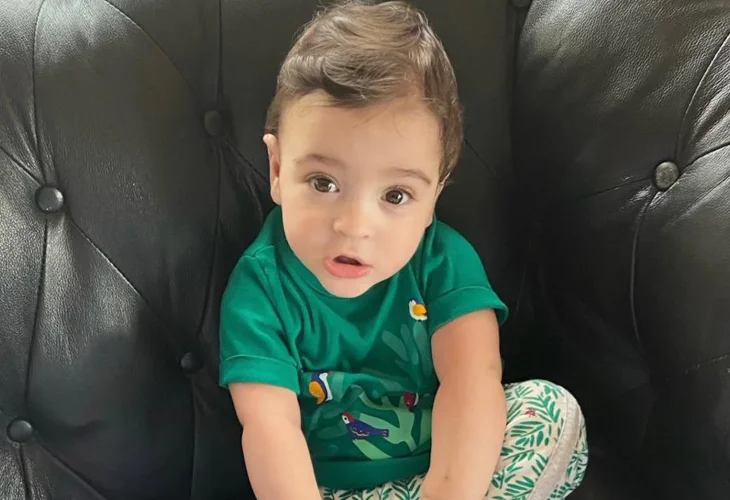
"We faced a tough journey until we could finally hold Elia, our firstborn son," says Ariella Sabag as she recounts the story of her son Elia — a tale filled with miracles and wonders. "After such a long wait, we didn't even get to see him right after birth because Elia came into the world at 24 weeks and immediately needed intensive care, including ventilation and intravenous feeding."
Ariella herself finds it hard to believe the journey they've undergone. "We were blessed to witness real miracles, as no one on the medical team believed Elia would survive and grow into a healthy, intelligent child. Yet here we are, and that's why I share my story — to let people know that sometimes the impossible happens, and you just have to have faith in Hashem."
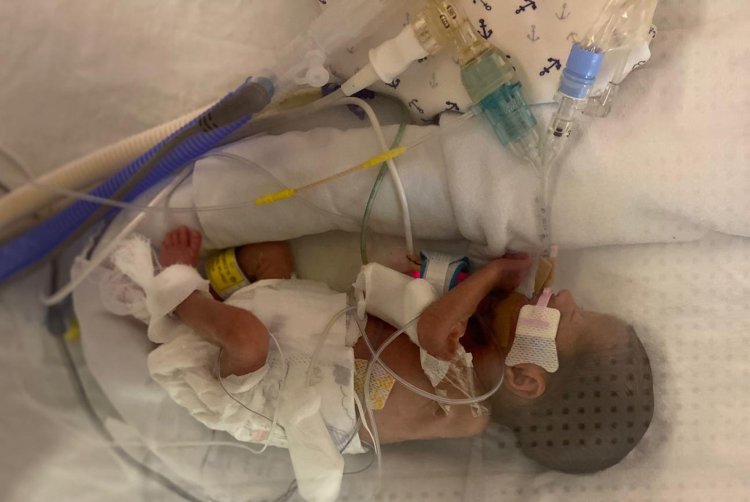
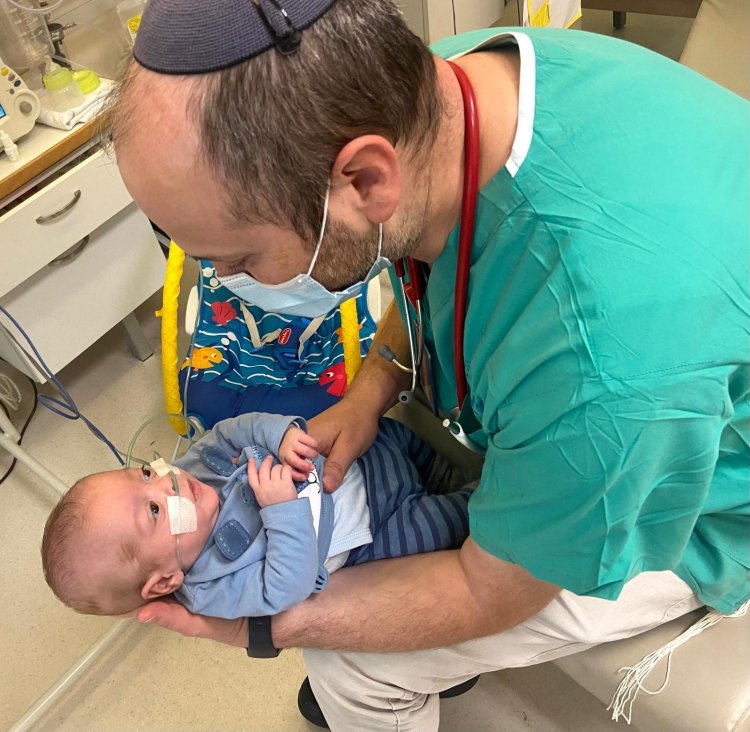
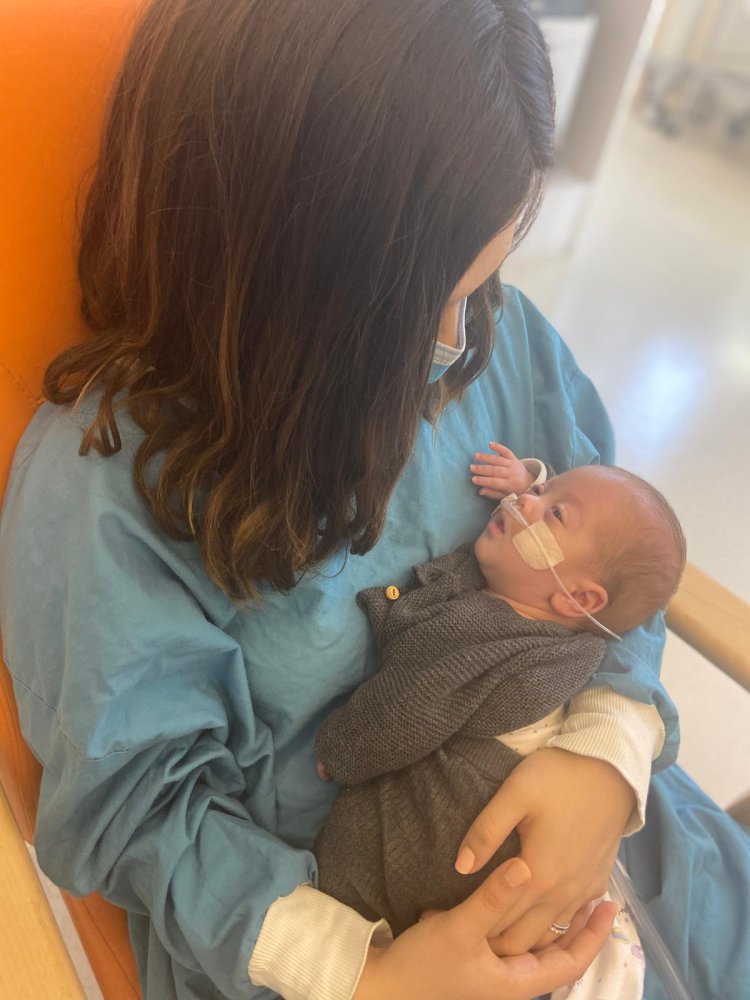
The Fight to Survive
"Elia was born about four and a half months before the expected date," Ariella recounts, "and the first time we met him was the day after the birth. I arrived at the neonatal unit in a wheelchair because I had a very tough recovery, and there I asked the nurses: 'How is he?' They took us to the incubator, and we saw him for the first time — a tiny baby weighing 650 grams. They quickly made it clear to us that his condition was critical: 'He's very small, his lungs haven't developed, and his eyes haven't even opened.' We were prepared for the fact that his chances of survival were minimal."
How did you cope as parents when hearing such dire predictions?
"It might sound strange, but from the moment I saw Elia, I just couldn't believe anything bad was going to happen. Even when they told me clearly that 'there are not many babies born at 24 weeks who survive,' I felt like I was falling apart, but I held onto hope and Hashem. I found myself standing in the center of a circle, with the medical staff around me, saying with complete confidence: 'My son will live because only Hashem decides.' They looked at us with pity as my husband and I left the department. At that moment, beeping sounds were heard from Elia's bed, but we didn't realize it was related to him, and continued to walk away."
Ariella notes that later one of the doctors asked them, "Did you hear what happened with your son?" When they answered no, he told them that right when they walked out of the neonatal unit, the baby "extubated" — he pulled out the ventilation tube, and with great difficulty, they managed to reconnect it. The doctor explained to us that with such a small baby, they try very hard not to touch his head in the early days, because the blood vessels are thin and weak, which could lead to bleeding in the brain and irreversible damage. Here, they had to touch him repeatedly to reconnect the tube, an action that did cause bleeding, but thankfully the bleeding was quickly absorbed, and our Elia continued to grow and fight."
Ariella points out that during this whole period, they had no family members to support them. "My parents live in France, and my husband's parents are in the country, but during those days COVID-19 was at its peak, and they couldn't come. But Hashem granted us the best messengers inside the hospital — Prof. Arnon Smauelev, who accompanied this complex pregnancy, Dr. Nathaniel Wassertai, a neonatology expert who treated Elia with immense dedication and literally saved him several times, Prof. Eli Picker, director of the pediatric pulmonology department, and of course, the devoted neonatal unit staff who was like family to us during those days. We were also very fortunate to have a dear cousin, Naomi Sabag, an ultrasound technician at Shaarei Zedek, who was always there for us."
"We found ourselves visiting the neonatal unit every single day and being there with ourselves and Elia, trying to sing him songs, give him as much warm touch as possible, and of course, pray for him. Simply asking that he survives and grows, despite the difficult predictions."
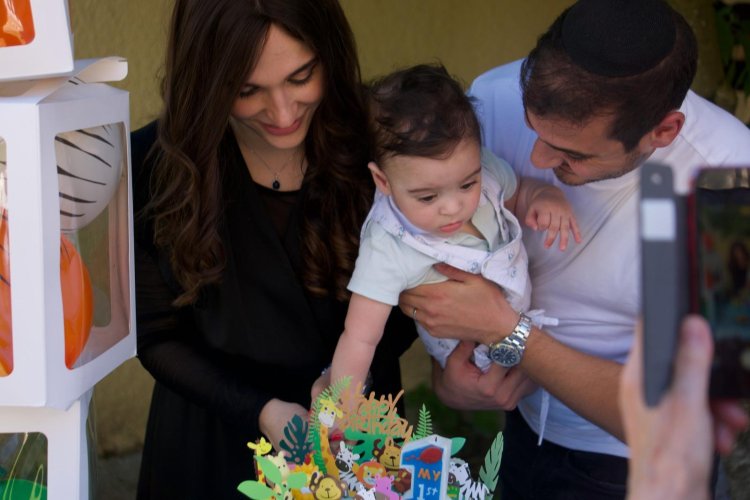
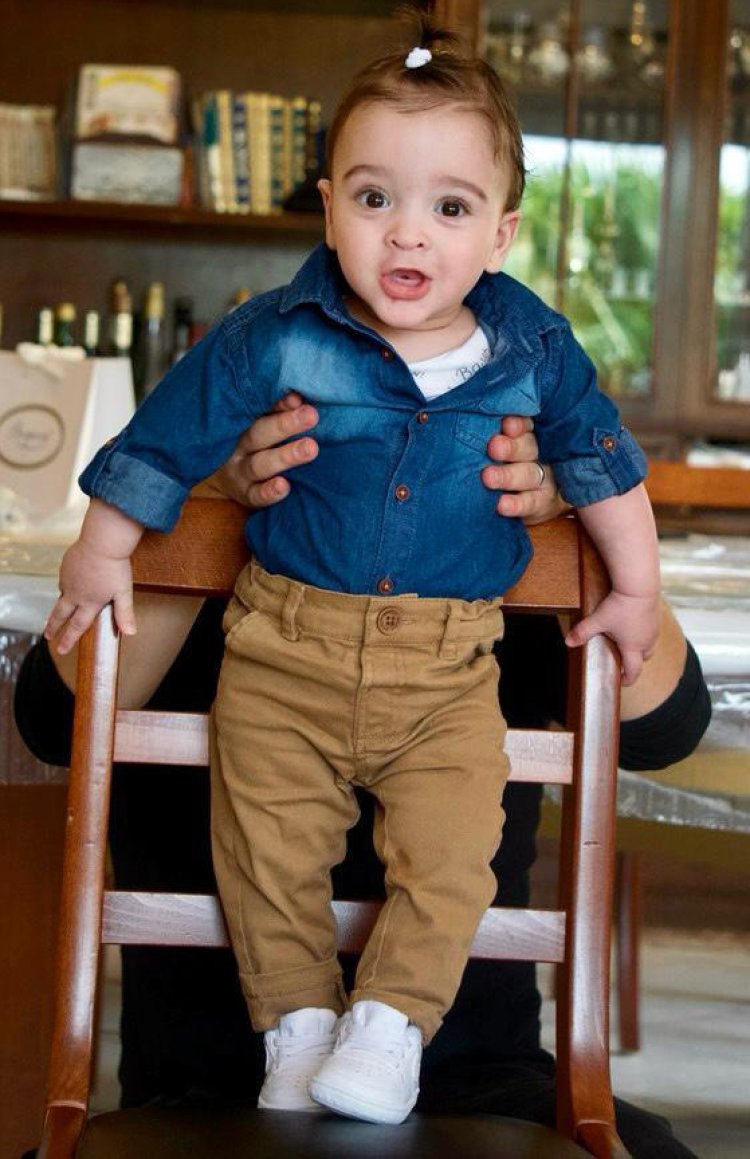
A Spark of Hope
The bleeding was absorbed, but soon more challenges arose. "When Elia weighed 700 grams, it was discovered that he had a perforation — a hole in his intestine," Ariella explains, "this is typical in premature babies, but when they weigh more than a kilogram, they usually undergo surgery to seal the hole. In our case, because Elia was so small, they couldn't operate; the only option was to place a drain for 48 critical hours. We experienced tremendous stress, and when his condition began to stabilize, the doctors explained that once he reached a kilogram, they would operate on him." Ariella pauses for a moment and notes that they experienced a real miracle: "When Elia reached a kilogram, they performed an ultrasound and found everything had resolved on its own, and there was no need for surgery."
The miracles continued to accompany them throughout the journey, even when Elia needed an injection in his eyes due to a problem with undeveloped blood vessels. "The injection helped, but we were prepared that it wasn't certain he would see, and the optimistic prognosis was that he'd need glasses even as a baby. I cried a lot, but after being discharged from the neonatal unit, we checked the eye where he received the injection, and it turned out the blood vessels developed anew, and its condition was good. However, it was said that he would also need an injection in the other eye, and we plunged again into a nightmare around the question — would he see, and how it would affect his vision? By the grace of Hashem, a month later, we saw everything had resolved. We received the final confirmation for the treatment when Elia was two and a half, and we did all the necessary eye exams with a professional optometrist. Everything turned out to be normal, and we were told he didn't need glasses at all, and even if he needed them — it would be at a much later age, like any other child."
The release from the hospital after four and a half months was emotional and joyful, yet also daunting. "We were discharged with oxygen and many instructions and guidelines," Ariella recalls, "we were very apprehensive about the transition home, and to our great joy, we met Dr. Yotam Almogor from Maccabi Health Services at that time — a special envoy who accompanied us through the initial period after the hospital discharge. He is responsible for a unique program from Maccabi Health Services that accompanies babies in complex situations post-discharge. He was with us and advised us all the time. Over time, he became part of the family, and he is simply an angel. We couldn't have asked for a better doctor. Thanks to him, the transition home was smooth and efficient."
In a conversation with Dr. Almogor, he notes that it's indeed a very unique program that's been running for four years under the supervision of Dr. Menachem Beitan, the regional doctor of Maccabi. "As part of the program, I accompanied sweet Elia, and I continue to support other children in complex situations until they integrate into the community. It's work with a lot of satisfaction and action. I feel it's a great mission to help parents in such situations."
Ariella shares that in the first two years after the discharge, Elia stayed at home with her, as she preferred to keep him away from the contagious illnesses that outbreaks in educational frameworks, investing all her time in him. At age two, they placed him in a regular daycare, and from there, he continued to a regular public kindergarten. "He's a social and happy child, intelligent and talented, and not a day goes by that we don't thank for the miracles done for him that are so extraordinary."
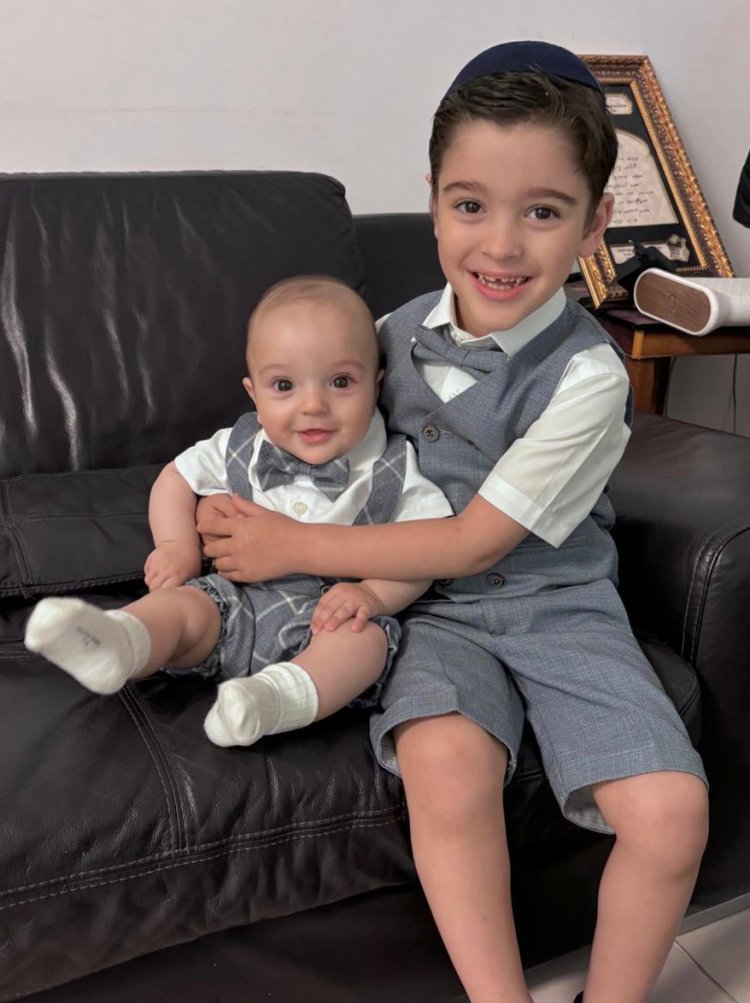
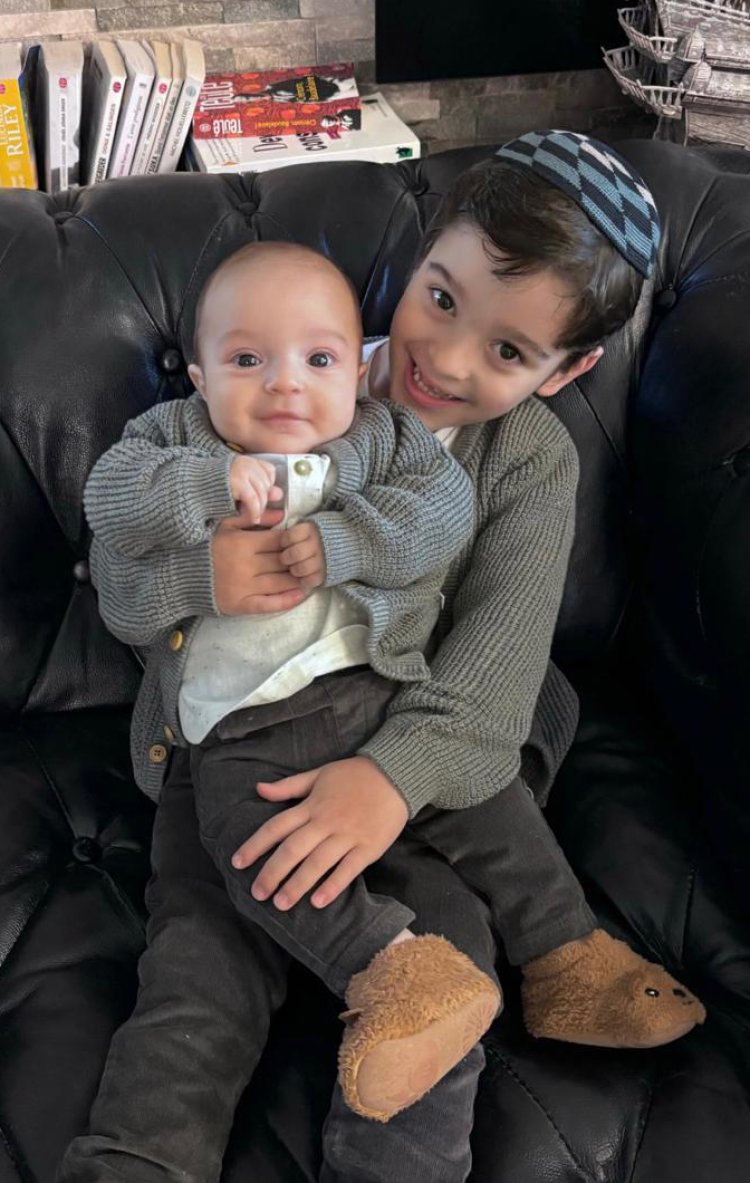
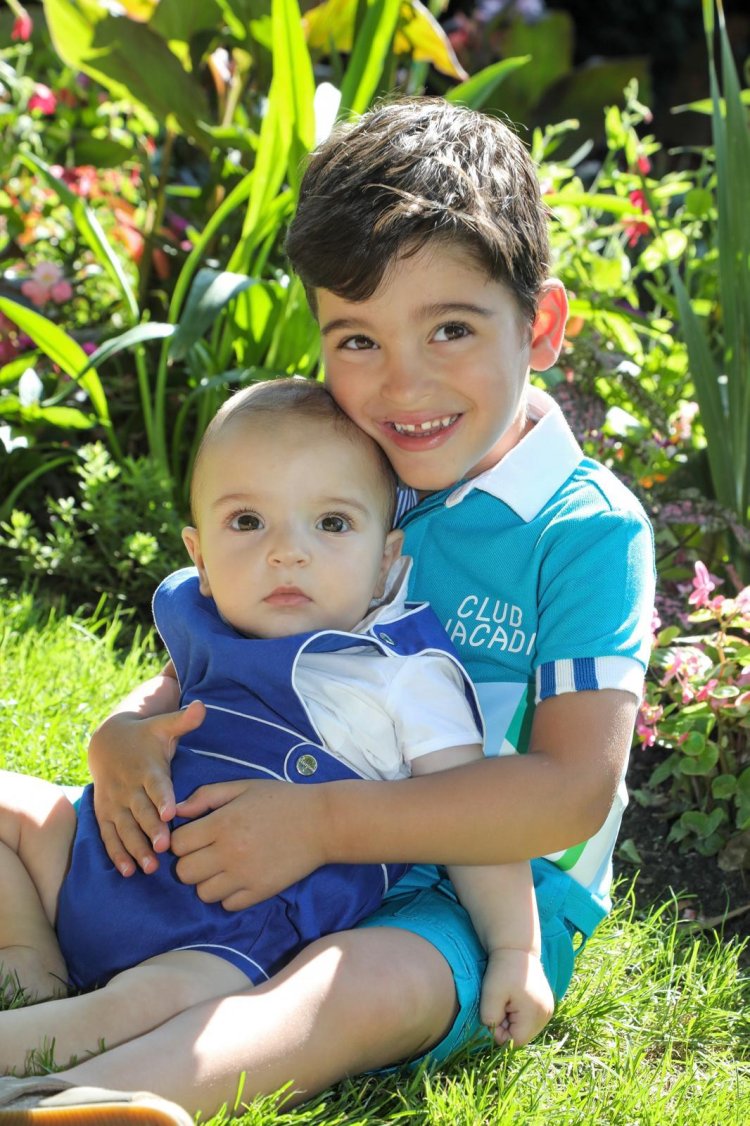
Ariella also shares that in the last year, they returned to Shaarei Zedek Hospital, this time to deliver their second son, who was born on time and on schedule. "We had the opportunity to meet the doctors in the neonatal unit again, and when they saw Elia, they were quite emotional, with tears in their eyes, telling us, 'When we see him, we know why we wake up in the morning and work.' They also occasionally send us parents of premature babies born at the earliest stages, and we always try to support, encourage, and advise because we understand how crucial it is in such situations and believe in the occurrence of visible miracles. Elia is the proof."

